Did you know that Native American cuisine is one of the most diverse in the world? With over 500 different tribes, each with their own unique recipes and traditions, there is a lot to explore! In this article, we will discuss the history of Native American cuisine, what it typically consists of, and some recipe ideas for you to try. We hope you enjoy!
Before we get started, make sure you check out this Ted Talk by Chef Sean Sherman, the founder of The Sioux Chef. He goes into great detail about the history and traditions of Native American cuisine, and where it belongs in the future.
The History of Native American Cuisine
Native American cuisine has been around for centuries, and is one of the most diverse in the world. Each tribe has their own unique traditional recipes, which have been passed down through the generations. And, there are many common dishes throughout Native America but each region has their own specialties. So, options abound.

The staples of Native American cuisine typically include corn, beans, and squash. These ingredients were some of the first to be cultivated by Native Americans, and they also remain an important part of indigenous cooking today. Other popular ingredients in addition include wild game, wild berries, and herbs.

One of the most distinctive features of Native American cuisine is its use of traditional methods of preparation. For example, many dishes are cooked over an open fire, in a clay pot, or in a horno (a traditional Native American oven). This not only adds flavor and complexity to the food, but it also helps to preserve the nutrients.
Native American Foods: Recipes
Now that you have a little bit of background on Indigenous American cuisine it's time to get into some recipe ideas! Here are a few dishes that you can try at home:
Tanka Me A Lo (Buffalo Stew)
To start us off, this is the indigenous version of "beef" stew accompanied by wholesome ingredients like potatoes and barley.
Hidatsa Stuffed Sugar Pumpkin
Next, we have Hidatsa Stuffed Sugar Pumpkin. It's from the Great Plains region and is easy and delicious. The sage, the pumpkin, the hearty meat – all reminders of Autumn in one dish.
Hopi Piki Bread
To follow, we have a grayish-blue bread called piki made by the Hopi tribe. It's has a dry yet delicate texture from blue corn and culinary ash.
Three Sisters Butternut Squash Chili
Another stew dish is “The Three Sisters." The title is derived from an old tale about Navajo gardening culture in that corn, beans, and squash grow best when planted together. This recipe is bold and rustic with chunks of butternut squash, peppers, beans, and corn.
Authentic Native American Pemmican Recipe
Pemmican is a way of combining dried meat with rendered fat to produce the Native American equivalent of a protein bar. Similarly to beef jerky, it lasts long and is satiating.
Wild Rice Sauté With Sweet Potatoes
Next up is a nourishing, special wild rice dish from an award-winning Native American chef. Wild rice is a long grain, nutty-tasting Native American rice that is often harvested from the Great Lakes region. Wild rice is a good source of thiamin, niacin, and vitamin B.
Great-Grandma Margaret's Fry bread
This is a Native American flatbread that is deep-fried in oil and is among other post contact foods. (Meaning after settlers arrived.) This fried bread can be served sweet or savory. Modern adaptations like the Navajo taco include cheese, meat, beans, lettuce and tomatoes.
Panocha
Panocha is a traditional Native American cuisine dish. In New Mexico and southern Colorado, it is is a pudding made from ground sprouted wheat and piloncillo. (sugar)
Sean Sherman’s Maple-Juniper Roast Pheasant
Chef Sean Sherman's recipe for Maple-Juniper Roast Pheasant. This dish is simple, yet elegant. The juniper berries, in addition to the maple size, create a unique flavor and depth in the glaze.
Cherokee Eggs & Wild Onions
Further your repertoire with this dish of Native American descent where scrambled eggs are cooked up with wild onions and then butter or grease for added flavor.
Cedar Braised American Bison
Finally, watch cookbook author and chef Sean Sherman of Owamni in Minneapolis, MN, make a one-pot wonder of braised bison and root vegetables.
Indigenous Cuisine Restaurants
Indigenous Restaurant Spotlight
After looking into these tasty recipes, we had to do some digging of our own for some local places to try out traditional native american cuisine. Thankfully, Oklahoma is just a hop away for us here in North Texas.
Thirty-Nine
Oklahoma City, OK

Thirty Nine Restaurant is Oklahoma’s answer to Modern Indigenous Cuisine. The restaurant is located on the north side of First Americans Museum and strives to honor the traditional ingredients of the 39 tribes in the state. They offer delicious adaptations using ingredients that have been grown, gathered, and hunted in this area for many generations.
Other Notable Restaurants in the U.S.
Can't get to OK? This article features some incredible Native American food joints across the nation.
So, we hope you enjoy this piece on native foods! There are so many delicious dishes to try, and each one has its own unique history and flavor. Be sure to explore your local Native American restaurant for some inspiration.
So go on and expand that palette. At the same time, you should tap into indigenous skin care. Aloe vera was used for healing, protection, and hydration of the skin much similarly to today.
Do you have any favorite Native American cuisine recipes? Or, share some of your favorite traditional foods in the comments below! We would love to hear from you. :)









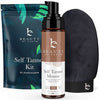




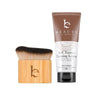








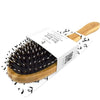

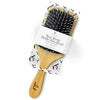







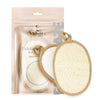
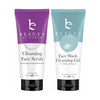










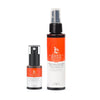




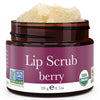
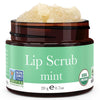
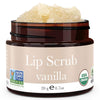





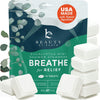
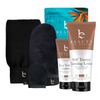
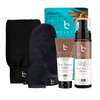



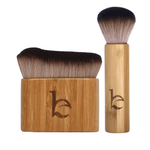
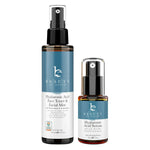


















join the conversation
I love the Foods of Native American Indians, Japanese, Mediterranean and Mexican Americans
Please send me Native American recipes
So interesting. Now I understand where my parents’ planting , cooking, and eating habits originated.
yaetah